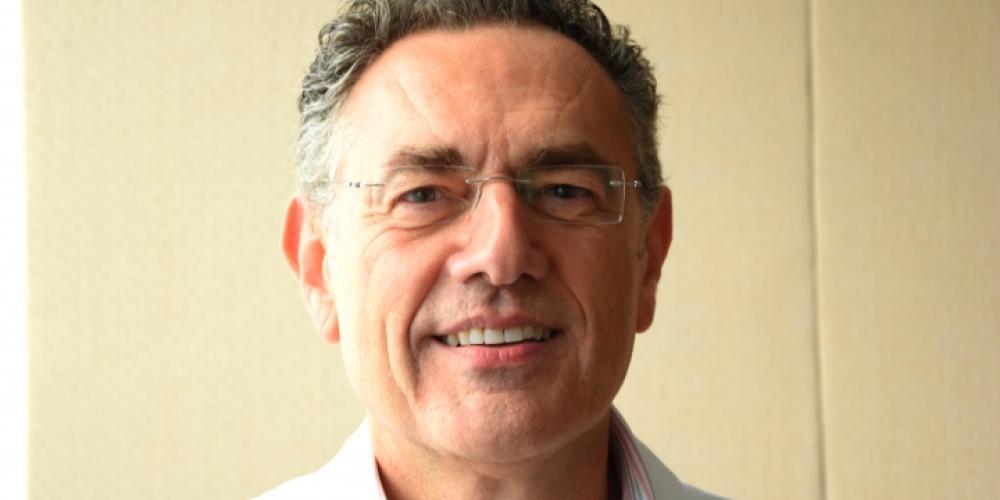
Interview and text: Marnix van Strydonck, alumnus at the faculty of Arts and Philosophy and VUB correspondent in New York
Getting into a car and driving through Europe to Brussels has been an unbelievable experience
Without the need of asking any questions, Dr. Palermo immersed us straight away in the story of how he started his career at the VUB as a young Italian who, at the time, had barely mastered the English language.
Dr. Palermo: “For me, studying at the VUB had been an emotional experience. I was born and raised in the south of Italy and you tend to live within this kind of narrow view of the world. Before moving away from Italy, I had done everything – including going to school and later to university – within a range of one hundred kilometers. I remember leaving the country once for a ski vacation with the family to Austria, but that’s about it. So for me, getting into a car and driving through Europe to Brussels has been an unbelievable experience. I got to meet these amazing people and at the time I especially had contact with Andre Van Steirteghem. He was pretty much the only one that I could understand with my limited knowledge of English. Fortunately, Andre knew a bit of Italian and somehow we managed to communicate.”
The professors who ran the hospital in Brussels made it look like a Swiss clock
Dr. Palermo remembers the Belgian hospitals as being efficient and dynamic. According to him, the VUB hospital staff was inspired by the American system regarding the organization of the work environment.
“I think that from an organizational point of view, the Belgians are very serious and reliable people. But then again, the hospital environment is the only setting I know in Belgium and I don’t know much about the rest of the country. All I can say is that the way Andre van Steirteghem and Paul Devroey were running the place made it look like a Swiss clock. It was incredible and I’m sure that with Herman [Tournaye], things will be the same.”
The brilliant thing about the VUB is that they have attitude
The decisive moment in Dr. Palermo’s academic career was when he came across a machine called the micromanipulator, which allows one to perform operations on a microscopic level. Enchanted by the sight of all the gear, his fascination for mechanics drew him to this impressive machine. One fine day, the Argentinian scientist operating the machine had disappeared without leaving much of a trace, except for the suspiciously large hammers, saws and power tools lying around everywhere.
Dr. Palermo: “I always wondered what on earth he was doing with these tools around something like a micromanipulator. Nobody knew why he left, but as soon as this happened, I went to Andre and told him that unless anybody else needed that machine, I would be willing to use it.”
Shortly afterwards, Dr. Palermo was invited to conduct a PhD research which would eventually allow him to spend all the time he desired with his beloved micromanipulator. After relentlessly changing parts and months of experimenting, he finally developed what we know today as the ICSI method, where an egg is manually fertilized by injecting a single sperm cell. Dr. Palermo explained to us how important the VUB was in the development of this revolutionary method.
Dr. Palermo: “The brilliant thing about the VUB is that they have money, equipment, but most importantly attitude. I really noticed that Flemish people have a distinctive attitude, a strong sense of reliability. When they saw my work ethics, they knew that I was serious about this and they trusted me, even though they didn’t know me. I was just so happy to have the opportunity to work there. I even waited for everybody to leave so that I could use the computers in the evening. In Italy, only the connected people could use the computers on the campus. I was getting things done and I was also very organized. I made sure that everybody could find his or her way in my order. Most of my fundamental knowledge comes from there.”
We also asked Dr. Palermo about the ethical aspects behind manual fertilization in New York. To our great surprise, it appears that he considers the Catholic Church to be much more powerful in Belgium than in Italy.
Dr. Palermo: “Here in New York you don’t feel this at all. However, at times, patients of certain faiths may require religious witnesses to oversee some aspects of assisted reproduction. This also has to do with the stronger sense of liability than in Belgium. Over here, you are expected to succeed no matter what. There is also a lot of competition, so that also creates a certain pressure. This is not really the case in Belgium. But in terms of morals and ethics, the VUB was extremely rigorous, non-pragmatic [non-religious] and strict. It was absolutely top-notch.”
When asked if he missed Brussels and the VUB, he could not deny the strong affection he had for the city, its medical facilities, but most importantly his friends and colleagues. Although there are many advantages to living in a city like New York, Dr. Palermo admits that there are things that he accredits to our little kingdom. One example, which he explained with much enthusiasm, are the plastic sheets with three holes in them that he uses to satisfy his insatiable appetite for order and organization.
Dr. Palermo pioneered the ICSI procedure at the faculty of Medicin and Pharmacy of Vrije Universiteit Brussel. This procedure is a revolutionized treatment for male-factor infertility. He has personally performed thousands of ICSI procedures which have led to successful pregnancies and babies for couples with infertility. In 2014, he was named Embryologist of the year for his lifelong contributions to the field of human embryology.